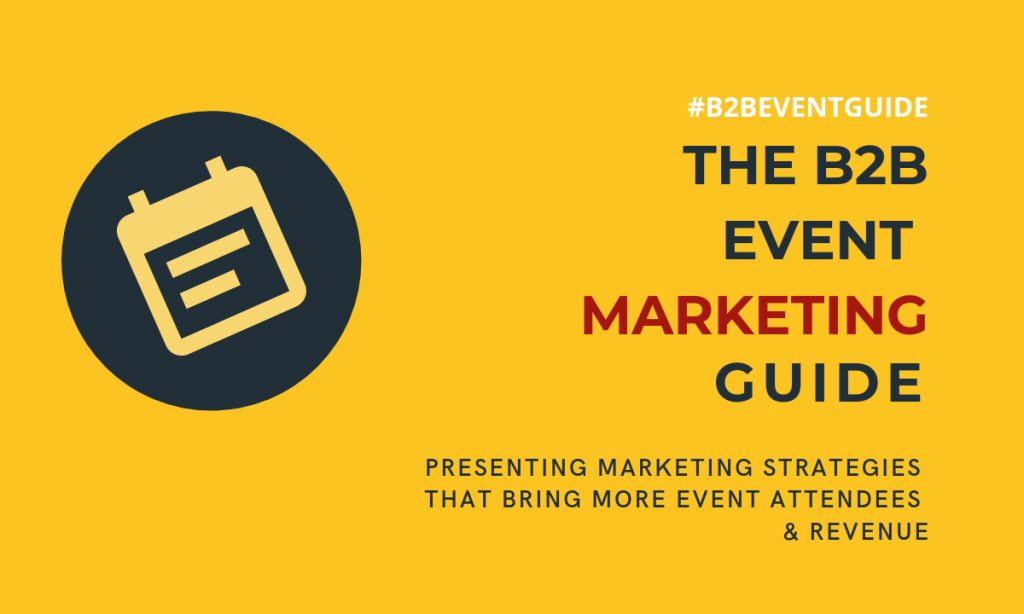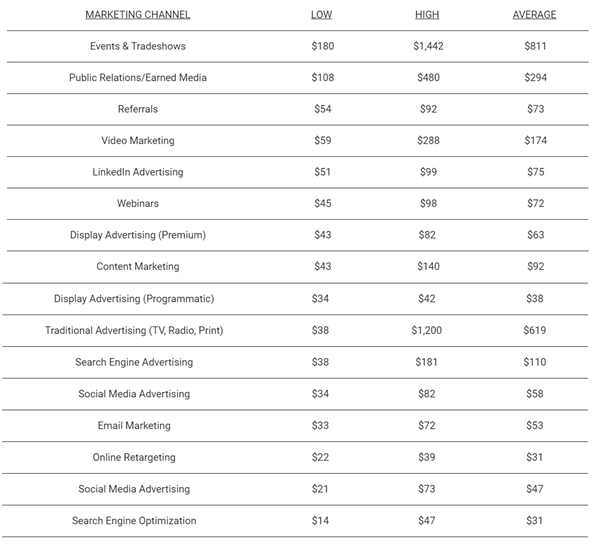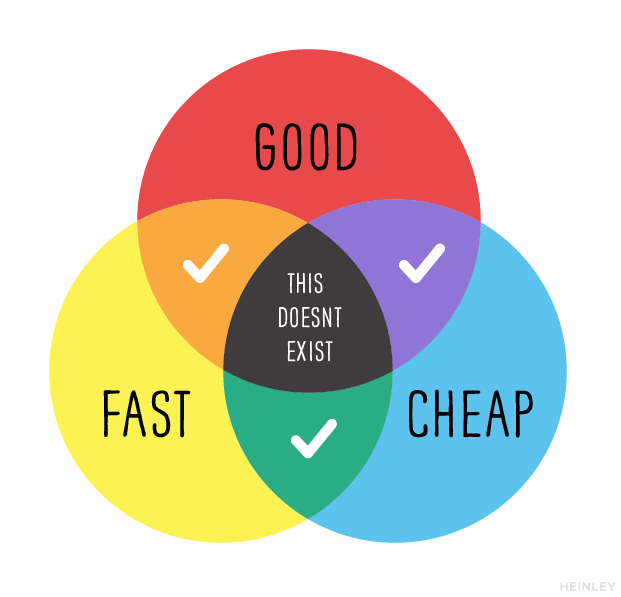
One of the million dollar questions in event marketing is “how do you attract attendees”. To try and answer it, we’ve created The B2B Event Marketing Guide, a 15 chapters report on the full marketing strategy and planning process that goes behind a business event.
The article below is an excerpt from the guide. Find the other chapters here.
In this section: Calculating ROI for event marketing with examples of target ROI for different types of events (new, established & big, established & small). Calculating ROI for free events. Deciding budget split for each marketing channel. Free tactics for promoting events.
In a rich events’ world, but let’s face it, no event has unlimited budget. So all we’ve discussed so far – data research, channels, content marketing, how much inbound and outbound marketing you do – all comes down to how much money and time you can spend on your marketing campaign.
ROI is calculated as (revenue generated) divided by (costs invested) * 100. If you’ve calculated ROI for each channel you’ve used, overall ROI will be easy to calculate as well, since you’ll add all spend and all results together, then use the formula above.
Sometimes, calculating ROI for each channel is complicated, some customers can be attributed to multiple channels, so you can just batch together marketing spend and revenue generated.
As mentioned before, 43% of B2B marketers don’t know how much revenue they help generate (source), so that’s the first skill you need to develop. A CRM can help you track customer interactions, but if you’re not using one already, you can still track with Analytics Goals like conversions or social media tracking pixels. In most cases, you will need to review both ticket revenue and sponsorship revenue, since your marketing campaign will also generate sales leads.
From our experience, in most cases you’ll receive a fixed budget and be asked to deliver specific results for it. On repeat small events we’ve worked on so far, usual target ROI for ticket revenue is around 500-600% and this will increase significantly for large, well-established events. For launch events, this might go as low as 300%, since you’re just building your network and community.
If you’re working a on paid event and you are told you can spend a budget of $10,000, you can expect to generate around $50,000 – $60,000 in ticket revenue. There are always exceptions to the rules, with more established events generating event 2,000-3,000% or higher ROI, due to the low acquisition cost of a repeat customer.
Calculating ROI for free events
For free events, you’ll have to calculate ROI based on your perceived value of a lead or calculate backwards from the overall event ROI, if the event is sponsored. The budget here will also depend on the desired targets and will be harder to calculate, but you can use similar events to work out the cost/attendee.
If you ran a free event that brought in 100 attendees and spent $5,000, your cost per attendee is $50. If you want to run a free event now with 200 attendees, your target spend will be $50*200 attendees = $10,000.
Discuss budgets with your manager and to set correct expectations based on previous event spend and/or projected ROI.
Deciding on budget distribution for different channels
Be prepared to justify your investment by how much revenue you estimate each channel will bring you. This can be done by looking at past results, by online research and by rough estimation.
Say you want to increase the spend on video production because you can attribute 5 registrations to it for your last event. Be prepared to present an estimate of how your budget increase will generate more revenue based on previous results and online research. Alternatively, you can find estimates of cost for leads from specific marketing channels and predict ROI for them based on your ticket/sales package cost and conversion rates. For example, here’s an USA estimate of average cost per lead by industry and by marketing channel:

If you know or estimate your conversion rate from social media is 4%, that means out of 10 social media leads, 4 will buy a ticket. The cost (as above) for 10 social media leads is $340, so you will have to calculate the revenue obtained from the channel by multiplying the 4 leads generated with your ticket cost. This will also then show expected ROI of the channel.
Free tactics for promoting events
You can also check out some tips & tricks to generate awareness through free marketing tactics, though only because they won’t have a budget invested, it doesn’t mean you will be able to get results with no investment. Remember the trio:

If you’re not spending money, it’s either time consuming or doesn’t have the greatest quality, so ensure you take this into account before deciding what channels you are using and what is the trade-off.
Key takeaways: base your budget on the cost per lead and be prepared to justify your marketing spend through past analysis, online research and estimates based on your knowledge of the market.
If you’re interested in The B2B Event Marketing Guide, fill in the form below to download it:

